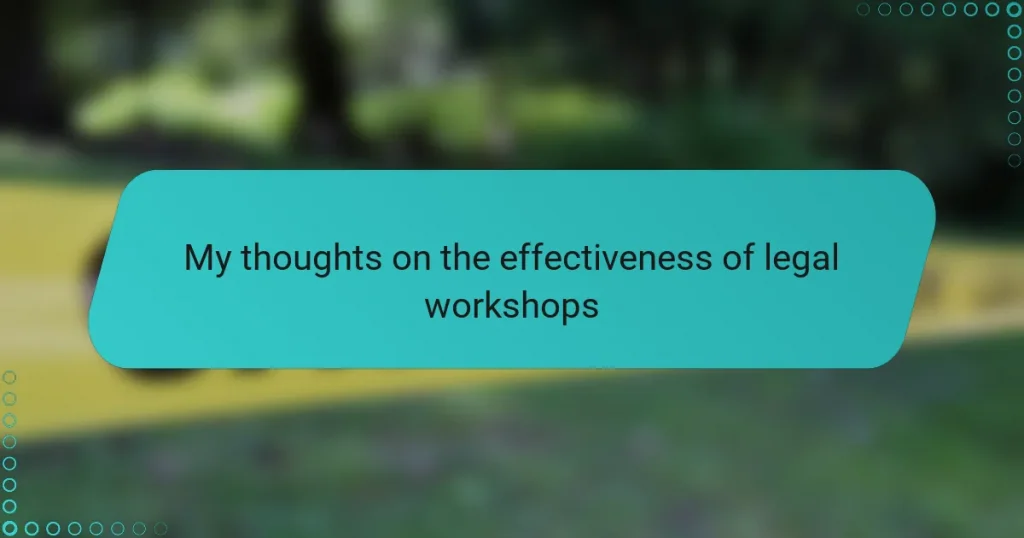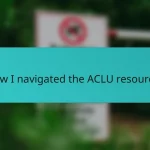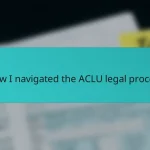Key takeaways
- Legal advocacy empowers individuals by simplifying complex legal concepts and providing tools for self-advocacy.
- Effective legal workshops focus on engagement and practical application, improving participants’ confidence and understanding of the law.
- Real-world impact and participant feedback are crucial for evaluating the effectiveness of legal workshops.
- Making workshops interactive and tailored to specific community needs enhances learning experiences and outcomes.
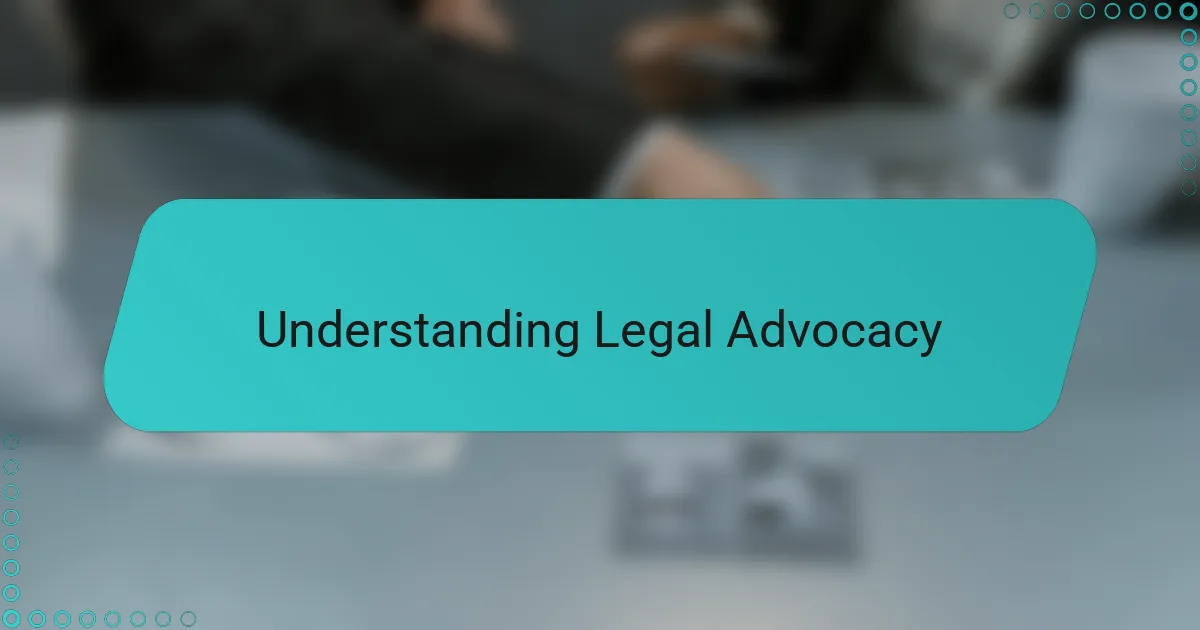
Understanding legal advocacy
Legal advocacy, to me, is the bridge between knowing the law and using it to make real change. It’s not just about understanding statutes; it’s about standing up for yourself or others in a system that can often feel intimidating and distant. Have you ever felt overwhelmed trying to navigate legal jargon? That’s exactly where advocacy steps in.
From my experience, legal advocacy is as much about empathy as it is about expertise. It requires listening deeply and crafting an approach that respects individual circumstances. When I first got involved in this field, I realized how transformative it can be to have someone who truly understands your situation and fights alongside you.
But what truly defines effective legal advocacy? I believe it’s the ability to empower people, giving them the tools to voice their rights confidently. It goes beyond winning cases—it’s about creating lasting awareness and change, one person at a time.
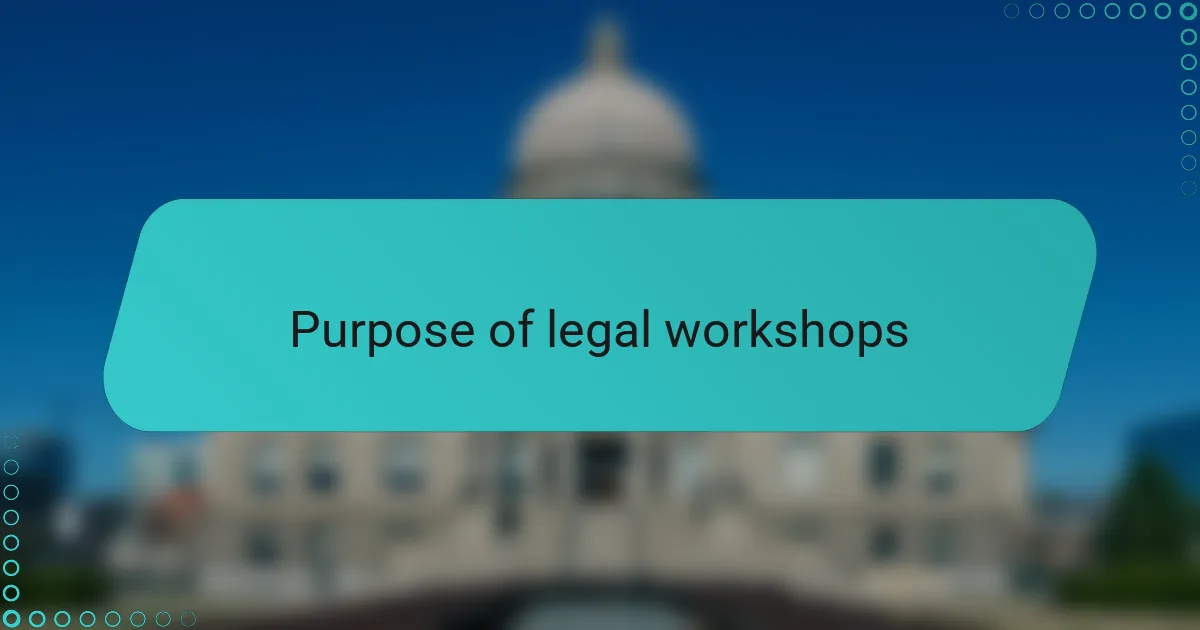
Purpose of legal workshops
Legal workshops, to me, serve as crucial spaces where knowledge meets empowerment. They’re designed not just to teach legal concepts, but to break down those complex ideas into something anyone can grasp. Have you ever sat through a presentation that left you more confused? That’s exactly what good legal workshops strive to avoid.
I remember attending a community legal workshop early in my career, and the difference it made was profound. Suddenly, what seemed like impenetrable legal jargon unfolded into clear, practical steps. It felt like a door had been opened, making the law approachable rather than alien.
At their core, legal workshops aim to build confidence. They give people the tools to advocate for themselves or others, turning passive observers into active participants. Isn’t it empowering to realize that the law isn’t some distant, untouchable force, but something you can truly use?
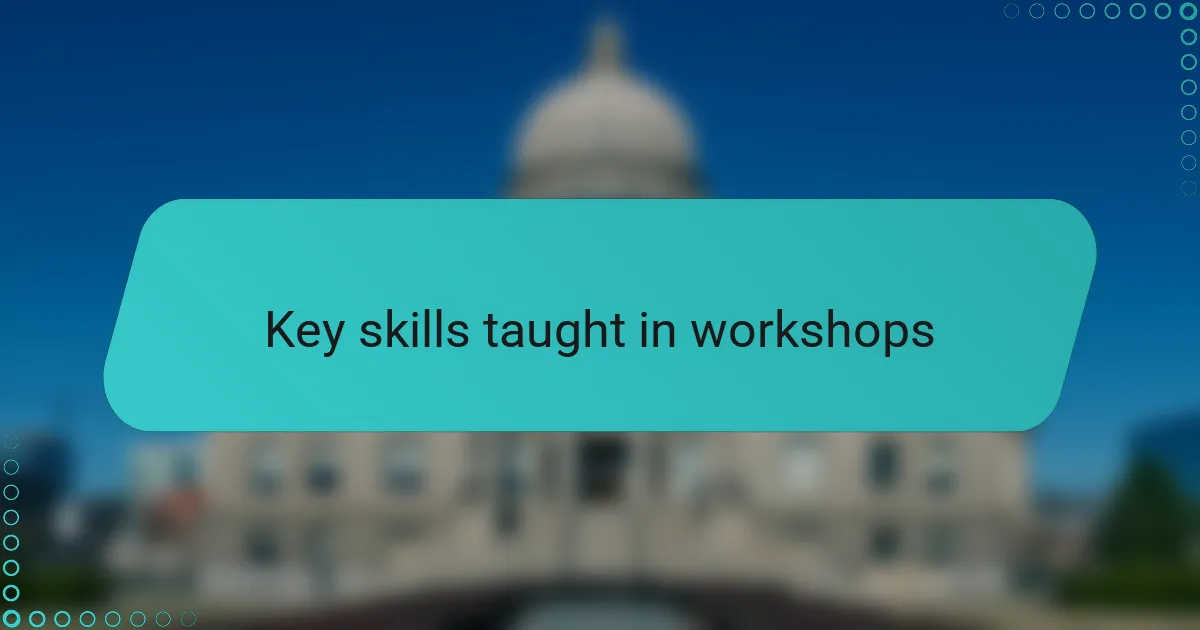
Key skills taught in workshops
One skill that stands out to me is communication—learning how to clearly explain legal issues without drowning in jargon. I remember a workshop where the instructor transformed complicated terms into everyday language; it made me think, why can’t all legal info be this accessible?
Another key skill is critical thinking. Workshops often challenge participants to analyze scenarios and apply legal principles, which is something I find invaluable. It’s not just about memorizing laws, but knowing how to use them effectively in real situations.
Lastly, workshops teach negotiation and self-advocacy. I’ve seen how practicing these skills in a safe environment builds confidence—suddenly, speaking up isn’t so intimidating. Have you ever felt powerless in a legal setting? These skills help change that feeling into empowerment.
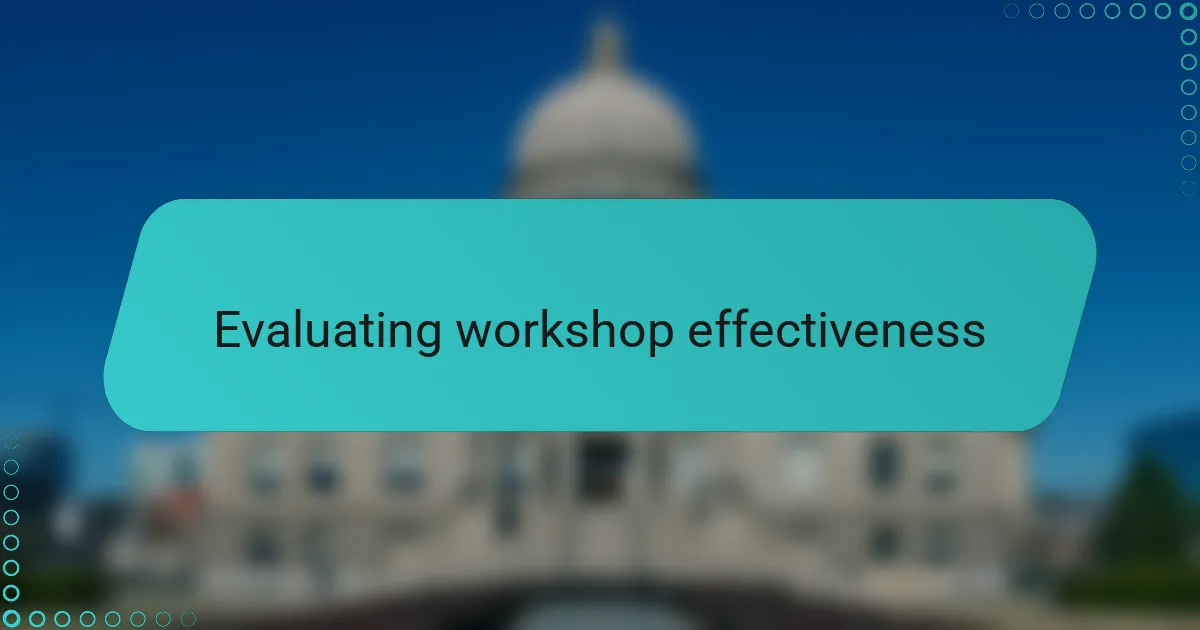
Evaluating workshop effectiveness
Evaluating the effectiveness of legal workshops often comes down to measuring real-world impact. From what I’ve seen, it’s less about how much information is packed into a session and more about how confident participants feel afterward. Have you ever left a workshop feeling like you can actually take on your own case? That feeling, to me, is a true mark of success.
I’ve found that feedback from attendees is incredibly revealing. When people share stories about applying what they’ve learned, it’s clear that the workshops aren’t just theoretical—they’re practical tools for change. One time, a participant told me she used negotiation techniques from a session to resolve a landlord dispute herself; moments like that show the workshops’ power.
Another way I gauge effectiveness is by observing participant engagement during the sessions. When people ask thoughtful questions or practice new skills eagerly, it signals they’re internalizing the lessons. It’s like watching a spark ignite—a sign that the workshop isn’t just teaching, but transforming.
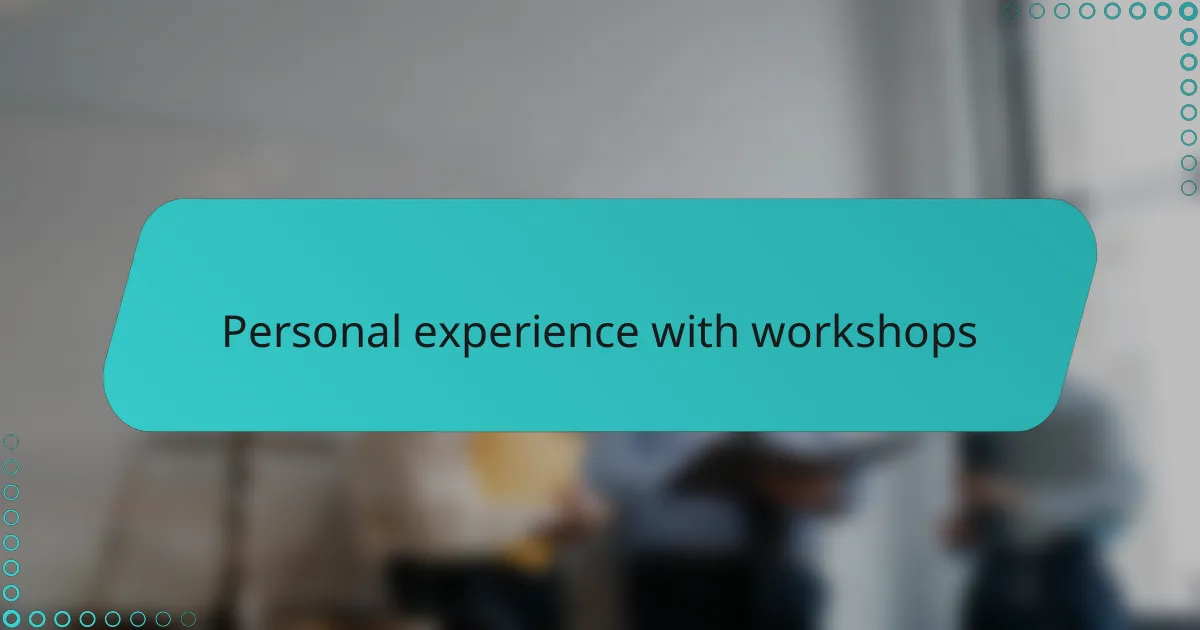
Personal experience with workshops
I recall my first legal workshop vividly; walking in, I was skeptical about how much I could actually grasp. But by the end, I felt a shift—a genuine sense that I could understand and use the law. Have you ever had that moment where something just clicks? That’s what these workshops did for me.
There was one workshop focused on tenant rights where the facilitator encouraged us to share our own experiences. Hearing others speak openly made the information come alive, turning it from abstract rules into real life stories. It struck me how much shared experience can deepen understanding and make the law feel less intimidating.
Sometimes, after a workshop, I find myself excited to apply what I learned, even in small ways. It’s that boost of confidence that I treasure most—like when I first tried negotiating a contract. Would I have felt ready to do that without those workshops? Probably not. They don’t just teach; they empower.
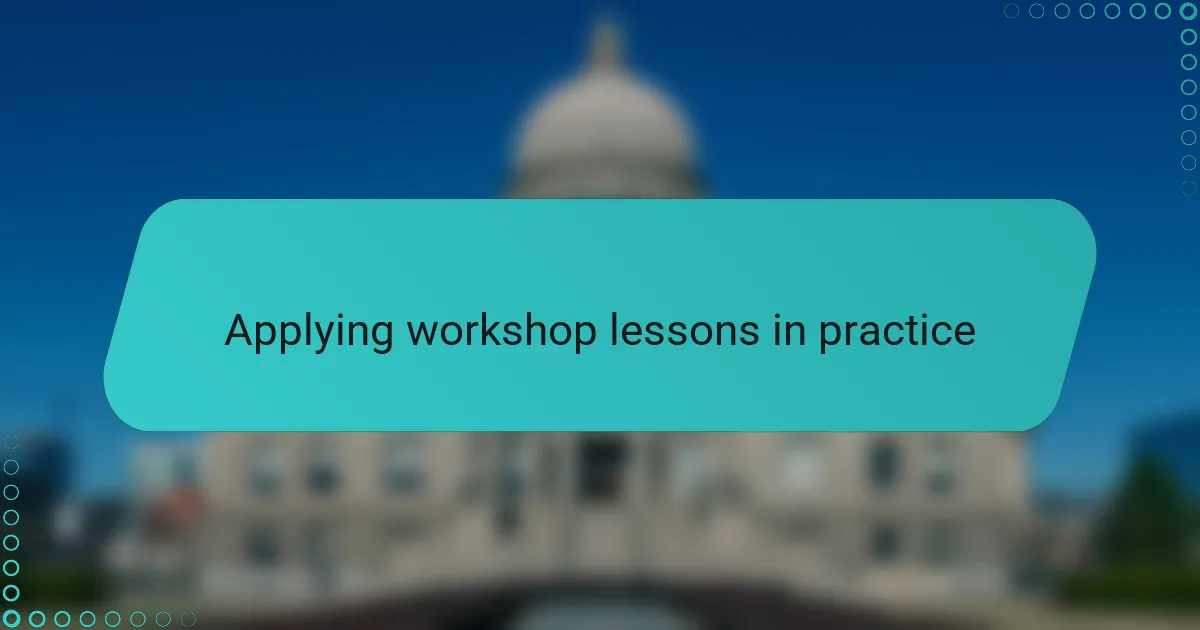
Applying workshop lessons in practice
Putting workshop lessons into practice is where everything really comes together. I remember after one session on negotiation tactics, I nervously tried out those techniques in a community dispute. The outcome wasn’t perfect, but that first step felt like breaking down a wall I didn’t even know was there. Have you ever noticed how trying something yourself shines a whole new light on what you’ve learned?
What strikes me is how applying these skills often sparks unexpected confidence. It’s one thing to listen and take notes; it’s another to stand up and speak your truth in tricky situations. From my experience, these hands-on moments are what turn knowledge into real power.
I’ve also seen that the real challenge is consistency—bringing those workshop tools into everyday conversations and decisions. Sometimes it’s as simple as asking better questions or clarifying your rights. Isn’t it interesting how small actions can create big ripples when we keep at it?
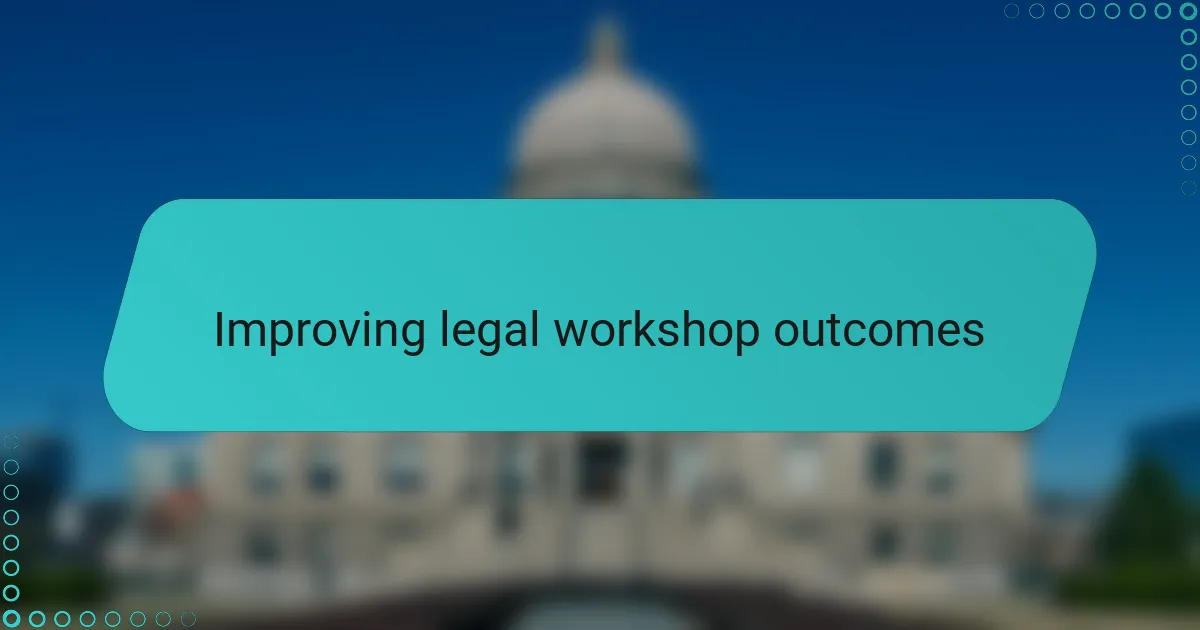
Improving legal workshop outcomes
Improving legal workshop outcomes, in my experience, often starts with making the sessions more interactive. Have you ever sat through a lecture where you’re just passively listening? I’ve found that when participants are encouraged to role-play or engage in real-life problem solving, the material sticks much better.
Another important factor is tailoring the content to the audience’s specific needs. Early on, I attended workshops that felt too generic, and honestly, it was hard to connect. When workshops address real issues people face—like tenant rights or workplace disputes—the learning becomes immediately relevant and motivating.
Finally, follow-up support can make a world of difference. I remember after a particularly impactful workshop, having access to a mentor or online resources kept me engaged and confident. Isn’t it reassuring to know you’re not alone once the initial workshop ends? That ongoing connection helps turn knowledge into lasting empowerment.
